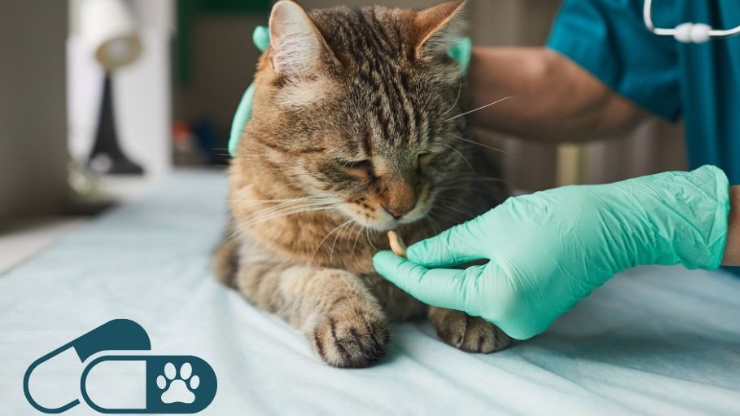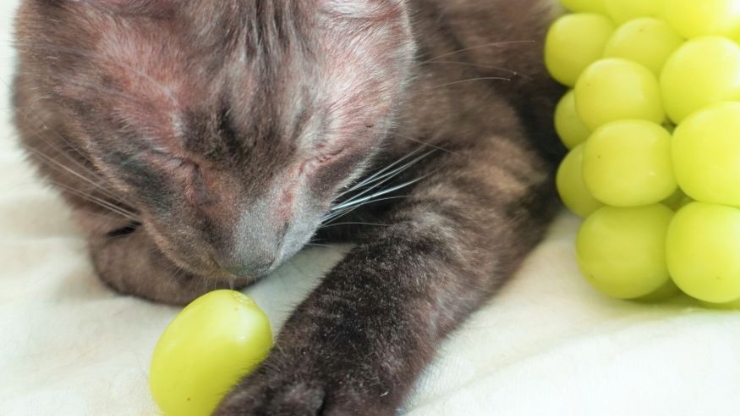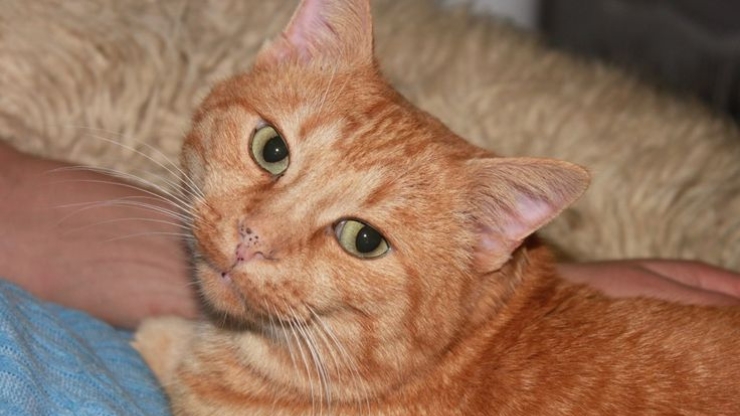Many people, when their cat is not feeling well, assume that what works for a human will work for a cat. However, most of the drugs that humans take, and even which are given to dogs, cannot be given to cats. Cats are extremely sensitive to a variety of drugs and many common over-the-counter medications are toxic to cats and may lead to death if ingested and immediate medical care is not given. Drugs meant to treat or prevent pain in humans can be especially dangerous to cats.
- Always Consult Your Veterinarian Before Giving Any Drug To Your Cat
- Importance Of Proper Dose Of Medication For A Cat
- Most OTC Drugs Used For Cats Have Not Been Specifically Approved
- Keep Cats Away From Human Drugs
- Common Drugs That Poison Cats
- What are NSAIDs?
- Cats are Twice As Sensitive To Ibuprofen As Dogs
- Symptoms of NSAID Toxicity in Cats
- Symptoms of Acetaminophen (Tylenol) Ingestion in Cats
- What Should I Do If My Cat Ingests NSAIDs?
- Are There any NSAIDS That are Approved for Cats?
- Other Pain Management Drugs For Cats

Always Consult Your Veterinarian Before Giving Any Drug To Your Cat
Although there are some over-the-counter drugs, such as Benadryl, that can be given to cats, you must NEVER give your cat any drug unless directed by your veterinarian, even if this article lists the drug as generally safe for cats.
Let me repeat this. Even if a drug is considered generally safe for cats, contact your veterinarian first, to receive advice and instructions for dosage. Once you describe your cat’s symptoms to your veterinarian, her advice may not include the medication you are thinking of giving your cat.
Importance Of Proper Dose Of Medication For A Cat
Be aware that if someone tells you a medication is safe for a cat, what they may not mention is that this medication is safe at the right dose. It can be difficult to determine the proper safe dose and the difference between a safe therapeutic dose and a dose with unpleasant side effects or even toxicity can be slight.
Also, it may be near impossible to change some human-sized pills into cat-sized doses, when the margin for error is slight. In these cases, it may be better to have your veterinarian prescribe a pet-sized dose that you can purchase from the pharmacy, or often, from the veterinary clinic itself.
Frequently, dosage sizes for cats are extrapolated from dosages for other animals, especially dogs, resulting in acute or cumulative toxicity. The importance of proper dosage and veterinarian advice cannot be overstated. Your cat’s pre-existing health conditions could well influence the dose given.
Most OTC Drugs Used For Cats Have Not Been Specifically Approved
It must be stated that most, if not all, of the human medications used for cats have not been approved specifically for use in felines. There may have been no clinical studies to determine their safety or exact dosage range.
Often, the dosages given have been developed through anecdotal evidence or simple trial and error. Error is not a good thing when it comes to using human drugs for cats. Their physiology is sufficiently different from humans that an error may well be final.
Again, it is important to understand that almost all the information you will see is based on anecdotal evidence. There is usually enough of such evidence that the safety of these drugs can be reasonably assured with veterinary supervision, but this does not mean one should be cavalier about such drugs.
What this all means is that anytime you give a human OTC drug to your cat, there is risk involved!
Why a Ball of Yarn is the Most Dangerous Cat Toy!
Keep Cats Away From Human Drugs
Be careful that your cat cannot come into contact with any drugs. If a capsule or pill is dropped on the floor, especially a colorful one, make sure you do not leave it there. It is common for pills to be lost on the floor, having ended up underneath something. You may think nothing of it if you can’t find it, but if your cat finds it and plays with it, chews on it, or eats it, the consequences could be very serious.
If you drop a pill or capsule and your cat is near, he may be attracted to it and try to chase and eat it. Cats may take things into their mouths just out of curiosity or as part of play. A pill or capsule doesn’t need to be swallowed for your cat to ingest some of the drug. Capsules containing liquid are especially dangerous. So, when it comes to household drugs, treat your felines like children.

Common Medications Toxic To Cats
Common human medications that cats are exposed to leading to harm or overdose are pain killers, including nonsteroidal OTC pain killers; antidepressants, antihistamines, sleeping pills, diet pills, blood pressure pills, and heart pills. Also, multivitamins can be toxic for cats.
Drugs classified as non-steroidal anti-inflammatories (NSAIDs), which are ubiquitous in our households, deserve special consideration.
What are NSAIDs?
Nonsteroidal anti-inflammatory drugs are drugs that are used for their analgesic, or pain-relieving effects as well as their anti-inflammatory effects. For pain relief, they differ from narcotics, such as codeine.
Unlike prescription opioid pain relievers, NSAIDs are not addictive. For their anti-inflammatory effects, they differ from steroid-containing medications, such as corticosteroids, in that they have much fewer side effects.
We use these drugs without any doctor’s supervision because they are relatively safe. They are so safe, in fact, we tend to think nothing of them. These medications are extremely toxic to cats.
The most familiar NSAID, historically, is aspirin. The most common NSAIDs today are ibuprofen (Advil), and naproxen (Aleve).
Acetaminophen (Tylenol) is not usually considered an NSAID. In fact, doctors do not understand exactly how it works to control pain but, for our purposes, we can consider it as part of this group of drugs. Acetaminophen overdoses are even dangerous for humans, let alone for a cats.
Cats lack the enzymes necessary to detoxify NSAIDs so they can be safely eliminated from the body. The specific enzyme that is most important is a liver enzyme called glucuronyl transferase.
This enzyme breaks down the drug, so that the results can be metabolized by the body, and eliminated. Cats are deficient in this enzyme, so the liver cannot break down the drug. Dangerous substances are left in the blood when the body tries to metabolize the substance. These substances build up, becoming toxic.
Of all household drugs, accidental ingestion or therapeutic use of NSAIDs is the most common source of poisoning by drugs in cats, as well as in dogs (dogs can generally handle NSAIDs better, but do not give your dog these drugs without veterinary supervision and instructions).
Cats are Twice As Sensitive To Ibuprofen As Dogs
Since it is so common, Ibuprofen ingestion is perhaps one of the main causes of NSAID poisoning in cats. They are considered to be at least twice as sensitive to Ibuprofen as dogs and one 200 mg tablet is enough to cause severe vomiting and gastrointestinal pain in an average-sized cat. Ibuprofen ingestion in cats, like all NSAIDs, is a veterinary emergency.
Symptoms of NSAID Toxicity in Cats
One of the first symptoms of NSAID ingestion in a cat is vomiting. Other symptoms are:
- abdominal pain
- salivation
- weakness
If your pet gets a high enough dose, kidney failure or sudden death can occur due to respiratory failure and heart failure.
Symptoms of Acetaminophen (Tylenol) Ingestion in Cats
The symptoms of acetaminophen toxicity in cats are more severe. Your cat’s gums may turn blue and your cat may have difficulty breathing, and his face and paws may swell. Other symptoms are weakness, vomiting, and severe lethargy.
Although buffered aspirin is given to dogs fairly routinely, it is not often given to cats because of its potential danger. Some veterinarians may prescribe what they consider safe dosages for cats, occasionally. This does not mean that you should take it upon yourself to determine a cat-safe dose of aspirin.
While dogs have some ability to metabolize acetaminophen, cats are particularly deficient in this area resulting in a marked toxic effect.
What Should I Do If My Cat Ingests NSAIDs?
Hopefully, since you’ve read this article you will take steps to ensure that your pet does not come into contact with household drugs. Certainly, you will not give your cat a dose of Ibuprofen or Aleve.
If your cat does accidentally ingest one of these drugs, the faster you take the necessary steps, the more likely your cat can be effectively treated. Veterinary treatment, especially with smaller doses and within the first few hours, is often successful.
You should have the number of your vet handy and the number of the nearest 24-hour emergency veterinary clinic. If they are open, call your vet immediately and report what has occurred. If they are closed, call the emergency clinic.
Then follow the vet’s instructions before bringing your cat in to be treated to your vet’s clinic or an emergency clinic nearby. It is possible that your personal vet will recommend that you bring your cat to an emergency acute care clinic.
Again, if your veterinary office is not open, hopefully, you have the number of a 24-hour vet clinic that is located near where you live. Call them immediately.
If you cannot get in touch with a veterinarian, call the poison control center. The ASPCA operates a specialized pet poison control center. The number is (888) 426-4435. They also have a mobile app with poison information. Visit the ASPCA Animal Poison Control page for more information.
Are There any NSAIDS That are Approved for Cats?
While all the NSAID medications humans commly use are toxic to cats, currently, there are two NSAID’s which are approved for use in cats, but both of these are prescription-only, and neither can be used long-term.
Meloxicam, which is sold under the brand name Metacam, Meloxicam, and Loxicom, is approved to be used in cats as a one-time-only injection to control pain and inflammation after spaying, neutering, and orthopedic surgery. Before surgery, the injection will be given under the cat’s skin. Repeated use of meloxicam in cat can cause sudden kidney failure and death.
Robenacoxib, which is sold under the brand name Onisor, is also approved for controlling pain and inflammation after spaying, neutering, or after orthopedic surgery. It is given only once daily as a tablet or by subcutaneous (under the skin) injection and is to be used for no longer than three days.
Both of these NSAIDs are approved for prescription-only short-term use in cats. They are not recommended for long-term use since cats still have trouble breaking down these NSAIDS. They must be used properly!
Other Pain Management Drugs For Cats
NSAIDs are often the first line of defense in humans and pets, but other pain medications and pain-management drugs are used in cats under the right circumstances:
1. Opioids (codeine, fentanyl, hydromorphone, morphine, and tramadol): used only for the most severe pain and discomfort such as post-surgery, severe arthritis, or advanced cancer.
2. Corticosteroids (dexamethasone, prednisolone): reduce inflammation which can decrease pain from arthritis, inflammatory conditions, or symptoms of allergies. Corticosteroids may be given for a variety of reasons, not only for pain management.
3. Gabapentin: a seizure med that can help control nerve, muscle, and bone pain.
4. Amitriptyline: although an antidepressant in humans, this medication can help nerve pain in cats.
5. Buprenorphine HCl: belonging to a class of drugs called mixed opioid agonist-antagonists, it is normally used to treat opioid addiction in humans by preventing withdrawal symptoms and is also a potent analgesic. In cats, it is sometimes used to control pain.



